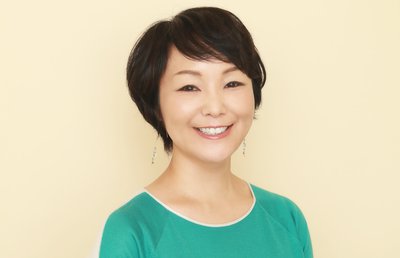16 Jan 2020
MILE Alumni Profiles: Wakako Oshima
..Now is the best time to join the MILE programme and put your insights into shaping the future of the WTO.
MILE 7 graduate Wakako Oshima, a Japanese national and US-licensed lawyer with top law firm and in-house counsel experience, talks about how she moved from WTO litigation to promoting the sustainable development of businesses across borders.
What work you are currently engaged in?
I am the founder and CEO of Asteri Co., Ltd. set up in 2016. Asteri means “star” in Greek and our mission is to support the sustainable development of businesses whose vision is to achieve sustainability development goals (SDGs) for the future of our planet Earth. We also conduct seminars related to sustainability topics, together with Kyoto University of Foreign Studies. Our discussions focus on what each of us can do for our planet Earth, and also the future generations to come. The series of seminars provide all participants a chance to shift their focus to what we can do now from the perspective of 50 years from now.
Why did you choose to follow the MILE programme?
I started my legal career as a WTO litigation lawyer in Washington D.C. As I practised WTO law, I was fascinated by the intricate world of WTO rules/practices and how they significantly affect our daily lives. I wanted to learn the fundamentals of WTO law and economics and that was when my ex-colleague at the D.C. law firm suggested I apply for the one-year MILE programme in Bern, Switzerland. The MILE programme appealed to my interests, especially because it consisted of students from all over the world, with different backgrounds and experience, and a common purpose.
How would you say it has shaped your subsequent career?
Our MILE 7 class consisted of about 30 people, who were all highly competent and talented individuals, from 20 plus countries. MILE 7 provided us with the place and time where people of different nationality, language, experience, background, etc. could gather to complete the specialised intensive programme.
To me, this environment helped create a relationship close to comradeship among the classmates and it gave me one of the greatest opportunities to understand from my own experience the true meaning of ‘working together across borders’. This was the reason why I decided to leave my established in-house head of legal counsel roles at multinational companies and start my own SDGs-related consulting business, in order to go beyond a solely legal-work-related framework and work on much wider aspects of international trade with people around the world.
What advice would you give to anyone considering the MILE programme?
As the end of the master’s programme neared, I realised that the members of MILE 7 were not only my classmates, who shared the time and learning together at the WTI, but also had become friends for life. Among many reasons for this was the fact that each of us is a passenger on the Spaceship Earth and the MILE programme is an opportunity to realise that it is really so!
I highly recommend the programme to anyone who wants to not only immerse himself/herself in the study of WTO law and economics, but also to engage in deeper discussions on how the world of international trade has shaped the way we live based on its historical background and various stakeholders interests. With the ever-increasing technological advancement, which is re-shaping the global trade dynamics as a whole and at all levels, now is the best time to join the MILE programme and put your insights into shaping the future of the WTO.
You can find the complete series of Alumni Profiles here.
Further info
Oshima, Wakako


